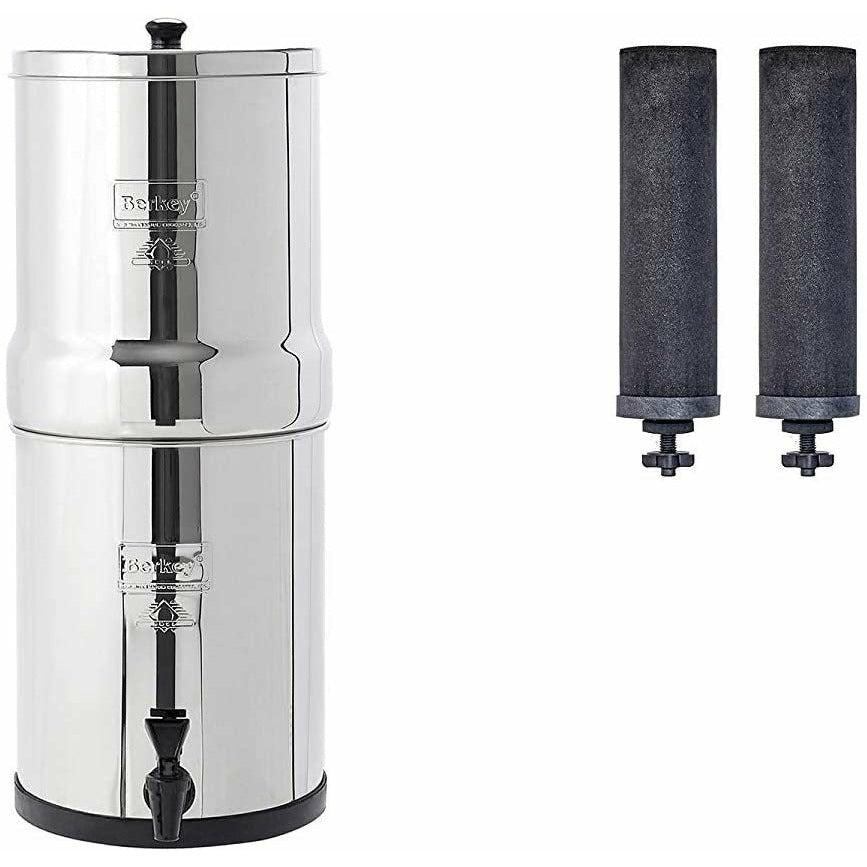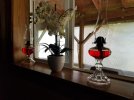Had a
consult on further prepping with Stefan Verstappen the other day - he's a delight to talk to if you have nothing better to do on a Sunday evening, and he has been featured on SOTT in the past. My notes from the consult are as follows:
He prefaced things with stating that stoicism and your own intelligence take precedence here - he repeatedly comes back to this point as the consult goes.
He began by outlining items in order of which things you don't have will cause you to leave the body soonest - three minutes without air, three hours without shelter, three days without water, three weeks without food - in this case, 'without air' means a medical emergency. I am seriously not prepared here, so we spent most of the first hour on assembling medical kit, with the advice that I get more first aid training ASAP.
Proposed
med kit:
- Antiseptic wipes are useless, get a big bottle of hydrogen peroxide, a lot of liquid is needed to clean wounds
- Syringe with 90 degree bend for irrigating an open wound
- Isopropyl alcohol as well for cleaning
- Dettol
- Triple antibiotic cream w pain relief
- Bandages - 4x4 gauze pads
- 1.5-2" wide bandage
- hockey tape, duct tape
- 8 pressure dressings, big fluffy gauze pad w/wrap, for gunshot wounds
- band-aids, nice fabric ones, band aid roll that you can cut to size
- magnifying glass
- tweezers, big tweezers
- scissors
- safety razor
- tylenol
- aspirin
- ibuprofen
- benadryl, also an epipen if you know you need one
- antibiotics - tetracycline, amoxicillin, penicillin, advised getting "fishmox", stating that it's the exact same as intended for humans and can be purchased readily - keep in cool dark place
- thermometer
- specifically read up on what to do in the events of allergic reaction, viral infection, mentioned this was covered somewhere in his "survival library"
- triangular bandages
- antacid tablets
- baking soda
- flashlight
- flashlight on a headband
- enema kit - specified as way to use for rehydration if you can't use an IV, specified how cholera kills by diarrhea and vomiting, other things kill by dehydration and loss of electrolytes
We then moved on to
shelter - mostly skipped because I live in sunny Florida - more notes:
- car blanket - can go in a backpack
- could get hit with a week of freezing temperatures
- emergency mylar blankets - they suck but they're better than nothing
- Work gloves - made out of kevlar
- Work boots, good pair of shoes, solid, track runners are okay, hiking boots, light work boots to cover ankle, don't need metal insole
- Good hat
- bandanas are great, can be soaked with water to stay cool, one in car, one in bug out bag
Now on to
water:
- 1 gallon per day of water
- Miscellaneous buckets to store water in
- Add 3 drops bleach, iodine, water purification tablets, this helps to keep it stored
- Store as much water as you can in advance
- How do you purify brackish water?
Cloth -> charcoal -> cloth again, then normal water filters
- Boiling is easiest. Bring to a boil, take it off the kettle.
- Heavily filter brackish water.
- How to carry water? 5 gallon water jug, folds flat when not in use.
This then lead to the
food discussion. 6 months was his proposed minimum in terms of food storage. Stefan advised creation of what he calls "care packages" - vinyl storage bins, about 18" long by 10" high by 2.5' long, full of about 3 weeks of food each. He advised getting cans and rotating them, loading the "care packages" up with food you want to eat, as opposed to freeze dried food that maybe isn't quite so tasty. More notes...
- Flaked ham, flaked chicken, meatballs in cans,
- Brown beans and wieners.
- Include coffee, tea, sugar, salt, rice, flour?, booze, etc. Learn how to make cornbread, work with cornmeal. (He proposed learning to make bread, the last bit was my edit, as gluten and I don't get along very well.)
- Powdered milk, instant pudding. (Need to find dairy free alternatives.)
- Eagle brand condensed milk (also need to find dairy free alternatives)
- Add powdered soups, can't get enough bouillon cubes.
- Add canned vegetables. Add canned fruits, 3-4 cans of fruit per "care package". Add more dried fruits?
- Keep gravy on hand to make it tasty.
- How do I make freeze dried food tasty?
- 2 cartons of cigarettes and 3 big bottles of vodka in each container.
And now we return to his starting point about stoicism and your own intelligence... People die in disasters when they lose their wits and panic, anxiety can be paralyzing.
Need lots of cigs and booze to cope with extreme stress. Also worth more than gold and silver. Want to get people over terror as quickly as possible, booze and cigs will help hugely with this. A good meal will also help. Make soup.
A lot of long term storable food is crap - eating well helps reduce stress and anxiety.
Prioritize protein
* 1 can of tuna per week
* Canned hams
* Canned meatballs
* Spam
* Sardines
* Canned oysters
* Canned crab
* Canned shrimp
-> all greasy proteins
-> will last for 10 years
Only use freeze dried storage in case of full on SHTF. Can eat dandelion leaves as greens.
Keeping anxiety under control is everything. Anxiety will kill you.
After this, he needed to go take care of his cat, crack open a beer, and back to the show!
Now on to
communications:
Assume power is out.
1) Emergency radio - useless - lame inaccurate news from officials
2) Get a small ham radio transceiver - BaoFeng UV-82HP
3) Extra rechargeable batteries, have solar
4) Also get walkie talkies, invaluable for caravans, teams - channel 3 on walkie talkies is sometimes monitored by ham radio operators
The point of prepping is to keep anxiety under control.
After getting the ham radio, get the local frequencies for local radio. Especially look for fire ambulance rescue. This has all of them. This has actual information. (
Security notes - I already have more in the way of guns and ammo than he recommends - IIRC, he's a fan of shotguns.
Fortification notes - nothing I can do here while living in an apartment, other than bracing the front door.
Getting started with community building:
Start with one other person within 20 miles. Within walking distance. Get a ham radio and set for 3 minutes in case of SHTF at a few set time periods.
Last note - he suggested that I get a bicycle and relearn how to ride a bike.




